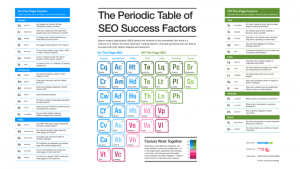
Today, many businesses hold their data in their CRM. CRM could be just as easily replaced with the word “database,” “marketing automation system,” data silo,” – you pick the term. CRM is the repository, in a recent interview by Syncsort, as part of their Expert Interview program, I had the chance to talk about the importance of data in CRM. It was a great opportunity to share crucial data quality strategies.
Be aware of technical challenges to overcome
Data quality impacts every system — Salesforce, Marketo, Microsoft Dynamics, etc. — and they each have their own language and ways that you must integrate with them. No matter what tools you use for data quality, integration with your core systems is crucial. For the integration partner, this is a challenge. For example, to write an application that is native inside of Salesforce, you must understand Apex programming. For Microsoft, you are writing in .NET languages. If you’re connecting with Marketo, you’re dealing with APIs or Webhooks. The challenge is making sure that you’ve got someone that is talented and knows the space.
When you have all of these different systems, how do you best develop for it? If you develop with the end in mind that you’re going to be integrating with multiple systems. You design differently from the start.
Balance automation with human interaction
To make positive change, you need a combination of people and technology. Find the right mix of automation and human interaction. Humans drive it and define it, while technology automates it. People are very necessary in the automation process. For example, don’t automate the analysis of your analytics. People must do that. As Bill Gates says,
“The first rule of any technology used in a business is that automation applied to an efficient operation will magnify the efficiency. The second is that automation applied to an inefficient operation will magnify the inefficiency.”
Automate what you have perfected. Leave the rest to the people, and figure out that right balance between the two.
Establish a data steward
Marketing operations or sales operations are often the data stewards in large organizations, but it’s typically about the department that owns the technology side. It’s going to differ in each organization, but is often a matter of determining who most feels the pain. Mark Cuban once said:
“Don’t take advice from anybody that doesn’t have to live with the consequences of the decision.”
This applies to data quality in any organization. If you’ve got to live with the consequences, you’re going to get buy-in; you’re going to alleviate that pain.
No matter who the data steward may be, take a single approach and understand the core issues of your data, break those down into components, and start tackling them in the right order. When I engage with a company as I am brought into the big data issues, I need to involve sales, marketing and IT. You need group buy-in and change management.
Big data is not about the amount of data you have; it’s about what you do with it. The vision of possibility is exciting. There are opportunities for big data in every area unimaginable – in what people eat, what they do, how they sell, even what their heartbeat is. The opportunity is in the analysis. Big data is fascinating.
Learn more by reading the full interview.
Achieve total data quality with the free complete guide below.
(196)









